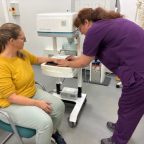
Is Diabetes Curable? Here's What Experts Say
Diabetes is a chronic condition affecting millions of people worldwide, with Type 1 and Type 2 being the most prevalent forms. Despite ongoing research and advancements in treatment, the question remains: Is diabetes curable? Here's what experts have to say.
Diabetes
Diabetes is characterised by the body's inability to regulate blood sugar levels. In Type 1 diabetes, the immune system attacks insulin-producing beta cells in the pancreas, resulting in little to no insulin production.
Type 2 diabetes, on the other hand, involves insulin resistance and eventual beta cell dysfunction, leading to inadequate insulin production.
Current Treatments
Managing diabetes typically involves lifestyle changes, medication, and in some cases, insulin therapy.
For Type 1 diabetes, treatment usually includes insulin injections or an insulin pump, along with careful monitoring of blood sugar levels.
For some, pancreas or islet cell transplants are options, but these are not widely accessible and come with significant challenges, such as the limited availability of donor cells and potential rejection by the immune system.
In Type 2 diabetes, treatment focuses on lifestyle modifications, such as a healthy diet and regular physical activity, combined with oral medications or insulin.
Recent research has highlighted the potential for remission in Type 2 diabetes through significant weight loss and lifestyle changes. However, remission does not equate to a cure; ongoing management and regular health checks are essential to maintain normal blood sugar levels.
Advances in Research
Type 1 Diabetes
For Type 1 diabetes, a cure would involve stopping the immune system's attack on beta cells and restoring insulin production. Researchers are exploring several promising approaches:
1. Immunotherapy
This treatment aims to retrain the immune system to prevent it from attacking beta cells. Early trials have shown that immunotherapy can delay the onset of Type 1 diabetes in high-risk individuals and help newly diagnosed patients by preserving remaining beta cells. However, the effects are often temporary, and more research is needed to develop long-lasting solutions.
2. Beta Cell Replacement
Scientists are working on creating beta cells in the lab to replace those destroyed by the immune system. Lab-made beta cells have successfully treated diabetes in animal models, and early human trials are underway. The goal is to develop an unlimited supply of beta cells that can be transplanted into patients.
3. Beta Cell Encapsulation
This approach involves encapsulating beta cells in a protective barrier that allows them to sense blood sugar levels and receive nutrients while shielding them from immune attacks. This method has shown promise in animal studies and early human trials, but further research is needed to ensure long-term safety and efficacy.
Type 2 Diabetes
Research into Type 2 diabetes has also seen significant progress. One of the most exciting areas is the potential for remission through weight management. The DiRECT trial, for instance, has shown that a low-calorie diet combined with professional support can put nearly half of the participants into remission after one year. While this is promising, it's important to note that remission can be temporary, and continuous lifestyle management is crucial.
The Role of Stem Cells
Stem cell therapy is an emerging area of research with the potential to revolutionise diabetes treatment. Stem cells can differentiate into various cell types, including insulin-producing beta cells. Research is ongoing to determine how stem cells can be used to restore insulin production and improve blood sugar control in both Type 1 and Type 2 diabetes. As mentioned, Stem cells regularise the production and delivery of insulin, which, in turn, helps patients with diabetes.
More Insights from Experts
Experts agree that while a complete cure for diabetes is not yet available, the advancements in research are promising. Dr. Natasha Hill, a leading researcher, is hopeful about the potential of stem cell-derived beta cells. "We're seeing significant progress in creating functional beta cells from stem cells, and early trials in mice are promising," she says source.
Another expert, Dr. Michael Young from the Mayo Clinic, emphasises the importance of ongoing research and patient involvement in clinical trials. "Patient participation in clinical trials is crucial. It not only helps advance our understanding but also offers patients access to cutting-edge treatments," he explains source.
Key Takeaways
Currently, diabetes cannot be cured, but it can be managed effectively with the right treatments and lifestyle changes. Ongoing research brings hope for new treatments that may one day offer a cure.
Maintaining a healthy lifestyle and staying informed about new developments is crucial for those living with diabetes.
By understanding the latest advancements and continuing to support research, we move closer to a future where diabetes can be cured or significantly better managed, improving the lives of millions worldwide.

















